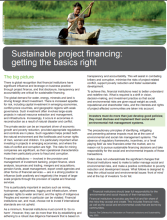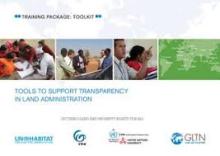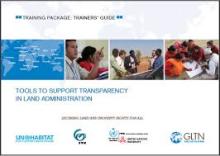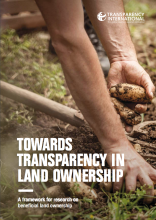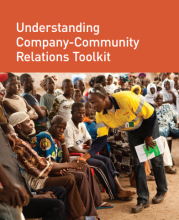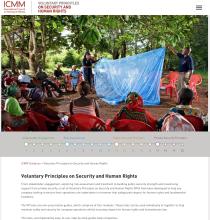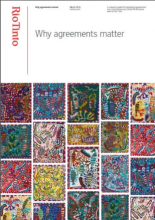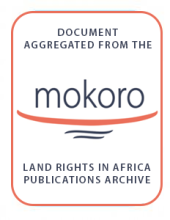Resources for Transparency & anti-corruption
Sustainable project financing: getting the basics right
This short briefing provides information for investors and lenders on the importance to develop a due diligence ‘risk framework’ to identify, mitigate and prevent the adverse impacts of their investment decisions. It provides links to additional resources on the topic.
Tools to Support Transparency in Land Administration : Training Toolkit
This training toolkit aims to sensitize government agents about land administration, develop their capacity to address issues of corruption and to enhance transparency in the land sector. It focuses specifically on land administration with a view to filling the capacity development gap in the land administration sector. Training content covers key themes clustered into different training sessions related to land governance, transparency, land administration and tools that could help bring about transparency. It comes with a trainer's guide.
Tools to Support Transparency in Land Administration: Trainer's Guide
This trainer's guide is complementary to this training toolkit. It is part of an approach that aims to sensitize government agents about land administration, develop their capacity to address issues of corruption and to enhance transparency in the land sector. It focuses specifically on land administration with a view to filling the capacity development gap in the land administration sector. Training content covers key themes clustered into different training sessions related to land governance, transparency, land administration and tools that could help bring about transparency.
Towards Transparency in Land Ownership: A Framework for Research on Beneficial Land Ownership
In many countries, unidentified private individuals and legal entities obtain significant economic benefits from land. This lack of transparency can make it harder for affected communities and governments to hold them accountable for land use decision-making and any sort of violation they commit. It can also leave investors open to risk if they do not know who is truly behind a company they are doing business with.
Building on a methodology used to investigate beneficial ownership of legal entities for the purposes of fighting tax evasion, money laundering and corruption, this publication proposes a research framework for assessing a country’s regulation of beneficial ownership in large-scale land holdings.
Understanding Company-Community Relations Toolkit
This guide is an aid for companies to achieve positive and resilient rapports with their host communities. It provides accessible information to understand factors that have an influence on community support and how this can be measured.
Voluntary Principles on Security and Human Rights
This set of Voluntary Principles on Security and Human Rights (VPs) have been developed to help any company looking to ensure their operations are undertaken in a manner that safeguards respect for human rights and fundamental freedoms. The tools, accompanied by easy-to-use, step-by-step guides help companies:
• Reduce production delays
• Maintain “Social License to Operate”
• Gain access to financing • Lessen litigation risk
• Maintain/enhance company reputation
• Operate successfully in complex business environments
Why agreements matter
The guide has been produced to help practitioners, project and operational managers understand the drivers, implications and capabilities needed to make and implement agreements.
Women, Land and Corruption: Resources for Practitioners and Policy-Makers
Despite increasing attention in recent years, little evidence has been available on the issue of women, land and corruption in Africa to inform effective policy-making. There has been no compilation of relevant background information, lessons learnt and approaches to tackling land corruption as it affects women. This publication aims to address that gap, providing practitioners and decision-makers with a compendium of research findings, contextual information and practical solutions to help fulfil women’s land rights. It presents specifically gendered evidence on how women are affected by land corruption differently from men, followed by responses tailored to women’s needs to address gender-based inequalities over land. Covers Cameroon, Ghana, Kenya, Liberia, Madagascar, Sierra Leone, Uganda and Zimbabwe.


